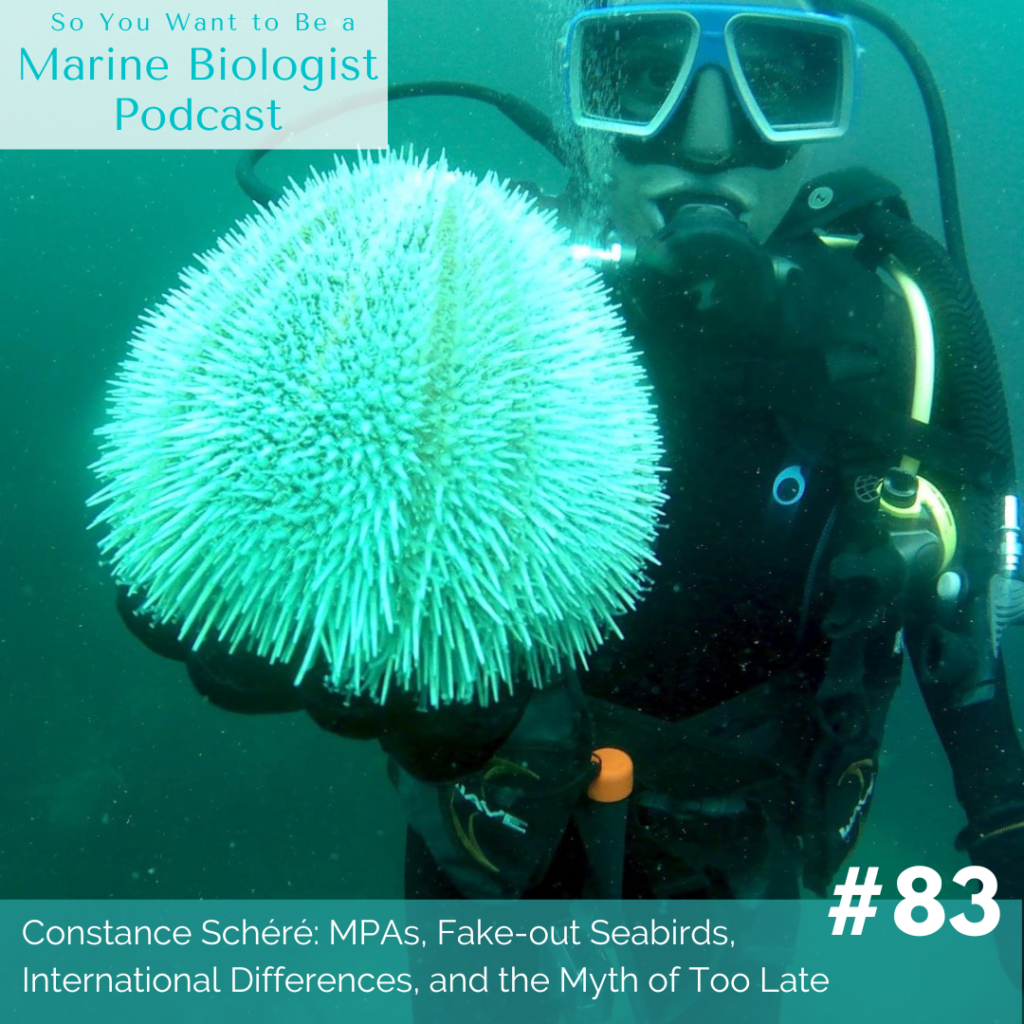With an undergraduate, two masters under her belt, Constance Schéré is currently working on her PhD studying MPAs. In this super wide ranging episode we chat about how Constance went from a history degree to studying marine science and then conservation, how growing up next to a marine protected area influences her work now, and how she’s brought it full circle. We leap all over the pond, from Constance’s native France to the US to Northern Ireland, and we also chat about the difference between the French, English, and American university systems (Constance has experienced all three), and when a university will actually kick you out. Constance recently co-authored a publication with the British Ecological Society about 30 x 30, and she shares just what that means and how we’re looking. Constance shares three pretty amazing field stories at the end of the episode, so be sure to stay tuned for that.
Connect with Constance: website| twitter| LinkedIn
Quick Links
King’s College London
La Manche
Science Po Paris
University of Massachusetts at Lowell
For the craic
Tufts University
Open University
Green Tides
Red Tide
La Reserve Nationale de les Sept Isles
Puffins
Royal Society for the Protection of Birds (RSPB)
Bird Life International
The Irish Sea
Convention on Biological Diversity
British Ecological Society
30 x 30 report
Gannet
Larus Gull
The Good Fish Guide
Show Notes
3:15 Sometimes you don’t always start where you’ll end up. Constance holds an undergrad degree in history- thinking that she would be a history teacher- and explains how she made the shift to marine science when she found out it was actually a viable career option.
5:18 Difference between French and American university systems. French is only three years, no “Gen Ed” requirements- you focus on your subject. You declare at age 16 which trajectory you’ll be on. In the US, you can figure it out as you go, change majors or get minors as well.
8:15 Constance explains what graduate school looks like in France, England, and the US. In France, there’s a deadline, in the US, the PhD can extend for several years.
12:20 Open University- who it’s good for and why its beneficial.
16:25 Science versus conservation. How they differ and how they work together. Studying the problem versus working towards fixing it, turning the faucet off the overflowing bathtub.
22:00 Constance shares how she’s bringing it full circle- studying an MPA in the Irish Sea but also doing summer internships at an MPA off the coast of her home town.
26:10 Why two masters degrees? Constance started off doing something she wasn’t super sure or passionate about, so she switched. “Too late” in life is just a myth. Constance switched and pursued a completely different degree, her mom got her PhD in her fifties, her dad is contemplating law school at seventy five.
31:30 Constance shares her work in the Irish Sea, explaining the different levels of MPA, the complexity of multi-nations governing the Irish Sea, what a “paper park” is and if the Irish Sea is one.
43:50 One of the biggest issues of governance of an MPA? That stakeholders don’t even realize they have a say! Constance explains this issue and how people can get involved what’s going on in their communities.
47:33 what the lack of equity does in marine conservation: if people feel excluded, they’re less likely to observe and respect the rules and regulations.
56:09 Constance teamed up with the British Ecological Society to create a report on 30 x 30- thirty percent of the planet (land and sea) protected by 2030.
59:39 What’s Constance’s favorite sea creature? She loves those pinnipeds! And she has an excellent story diving with one.
1:07:25 What does the ocean mean to you? Lifeline. For us all.
1:08:34 Blank check question. Every MPA would actually be an MPA with a management plan and team and accountability.
1:10:16 Favorite Field Story: the beach pays for its cleanup leads to a discussion about polymer currencies.
1:14:31 Conservation Ask: know the source of your seafood and the improbability of Seaspiracy’s message.
